Celebrating Bollywood’s progressive father figures
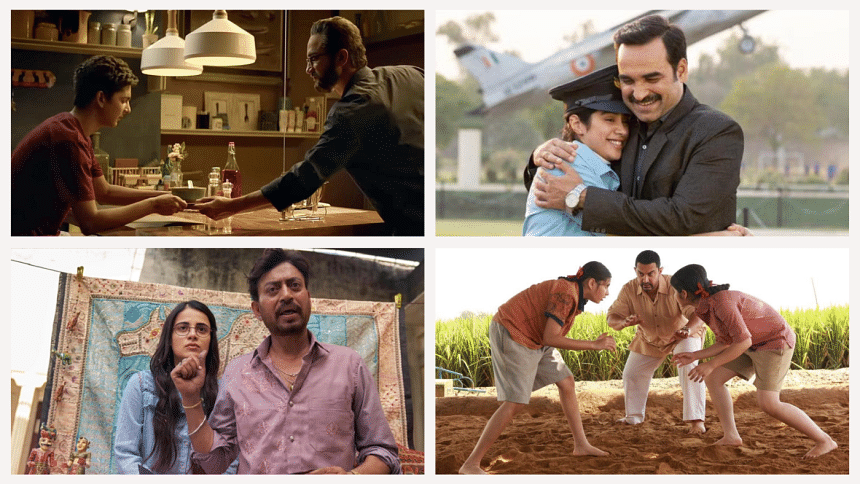
Bollywood has long been fascinated with father figures; stern, stoic, often feared, and rarely understood. But with time, the lenses and stories have softened. Over the last decade, a quiet evolution has been brewing on the big screen, one where the father is no longer just the breadwinner, disciplinarian or an almost antihero. He is a confidant, a co-conspirator, and, in many ways, a student of love, learning to grow with his children. This Father's Day, we look at some iconic characters who challenged the rigid moulds of patriarchy, through their presence, patience, and a willingness to change. These are not heroes in capes, but fathers who became heroic simply by listening, learning, and loving better.
'Bareilly Ki Barfi'
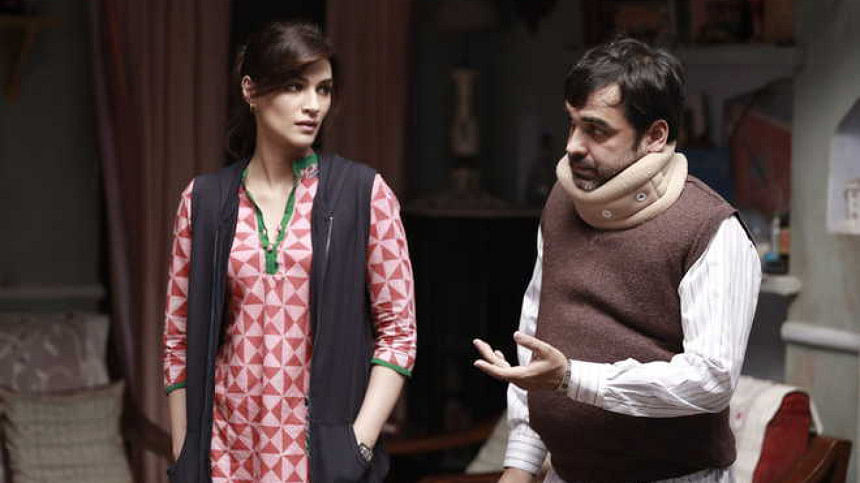
Narottam Mishra, played by Pankaj Tripathi, is a revolutionary father figure in "Bareilly Ki Barfi" (2017). Unlike the typical protective or authoritarian dad, he embodies a rare kind of acceptance in a small town that often stifles individuality. His daughter is free-spirited, tomboyish, and independent, traits that clash with the conservative expectations of their Bareilly community. However, Narottam does not suppress her personality or ambitions. Instead, he supports her decisions without imposing traditional gender roles. What makes his character remarkable is the subtlety of his love, as his support is woven into everyday acts, like letting her navigate life on her terms and trusting her choices. In a culture where fathers often symbolise control, Narottam represents a compassionate shift, showing that real strength lies in giving your child the freedom to be themselves.
'Chhichhore'
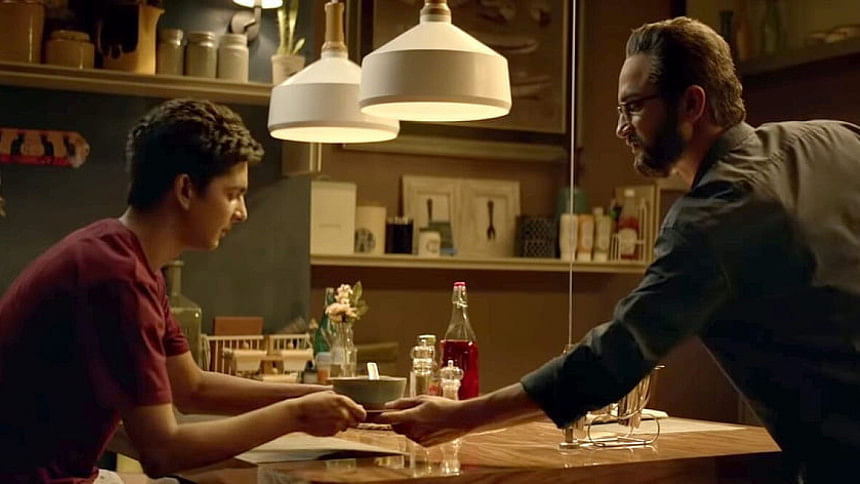
In "Chhichhore" (2019), Anirudh Pathak, played by Sushant Singh Rajput, is a father thrust into the painful reality of his son's suicide attempt. The film deftly explores how Anirudh's understanding of success and failure shapes his relationship with his son, Raghav. Initially, Anirudh embodies the classic pressure-filled parent, pushing his child toward academic excellence. However, the near-tragedy forces him to confront his own shortcomings and the unrealistic expectations that many Indian parents impose on their children. The film's strength lies in showing Anirudh's transformation, from disciplinarian to empathetic friend, through heartfelt conversations and memories shared with his college friends. It portrays a father willing to unlearn toxic lessons and rebuild trust. This narrative breaks Bollywood's often one-dimensional view of fatherhood, offering a deeply emotional and realistic portrayal that is vulnerable, reflective, and hopeful.
'Gunjan Saxena: The Kargil Girl'
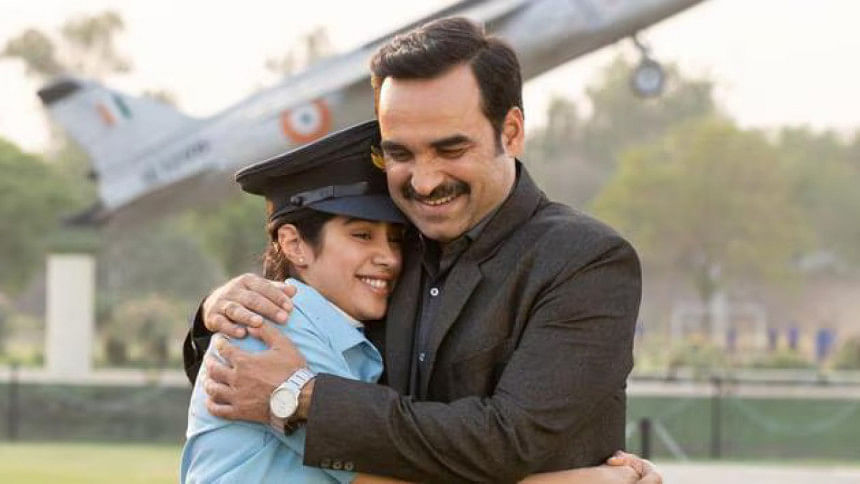
Pankaj Tripathi's portrayal of Anup Saxena in "Gunjan Saxena: The Kargil Girl" (2020) is a powerful, understated testament to progressive parenting in a traditionally patriarchal society. As a retired army officer himself, he understands the challenges Gunjan faces as India's first female combat pilot in a male-dominated environment. Rather than imposing cautionary advice, he encourages her ambitions wholeheartedly while refusing to let stereotypes dictate her path. He tells her she was born to fly, a radical message in a culture where daughters are often taught to limit their dreams. This father's unwavering faith in his daughter breaks the mould of conventional Bollywood fathers who either protect or control. He empowers, uplifts, and creates a space where Gunjan's courage and determination can take flight, highlighting how true fatherly love can be a catalyst for breaking barriers.
'Angrezi Medium'
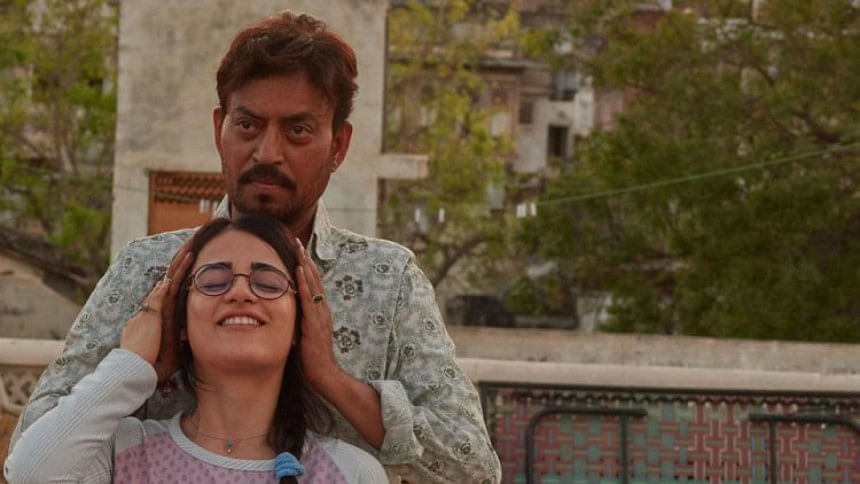
Irrfan Khan's Champak Bansal in "Angrezi Medium" (2020) is a warm, imperfect father whose journey encapsulates the struggles many parents face when trying to fulfil their children's dreams against all odds. Champak is no longer young; he is somewhat set in his ways, financially constrained, and emotionally vulnerable. Yet, his love for his daughter Tarika shines through every awkward attempt to help her study abroad. The film captures the emotional rollercoaster of a parent trying to bridge generations, cultures, and socioeconomic divides. Champak's humour and occasional stubbornness humanise him, making his efforts more touching rather than heroic. His love is expressed in persistence; navigating bureaucratic hurdles, missing his own comforts, and quietly confronting his fears. It emphasises presence and effort over perfection, highlighting the emotional labour of parenting with dignity.
'Piku'
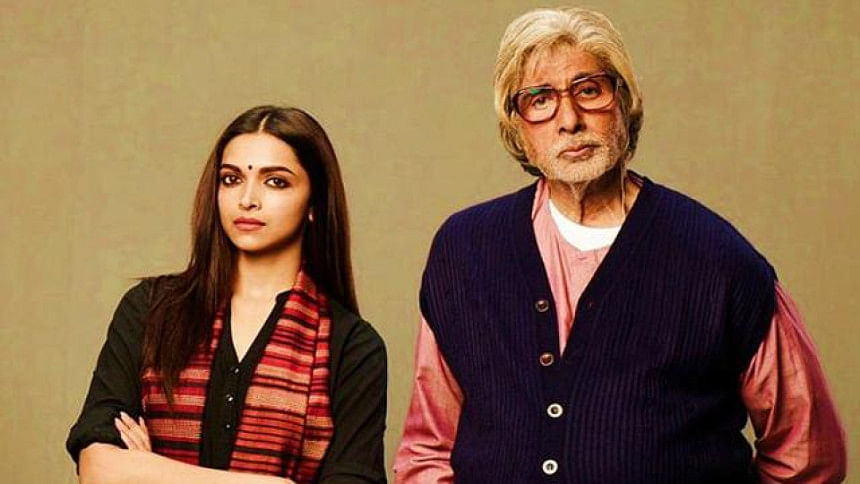
Amitabh Bachchan's Bhashkor Banerjee is an unconventional father figure who defies Bollywood's dramatic clichés. In "Piku" (2015), the relationship between Bhashkor and his daughter is marked by humour, frustration, and profound tenderness. Bhashkor is an aged, health-obsessed man whose constant complaints and eccentricities test his daughter's patience daily. What makes this portrayal exceptional is its honesty; there are no sweeping emotional monologues, only the real, messy give-and-take associated with adult parent-child relationships. The film acknowledges the inevitable role reversals as parents age and children become caregivers. Piku's love manifests in the routine care she provides, such as managing her father's health concerns and enduring his grumbles. This grounded depiction highlights that love between a father and child often dwells in the mundane and imperfect, a refreshing contrast to Bollywood's usual idealised portrayals.
'Dangal'
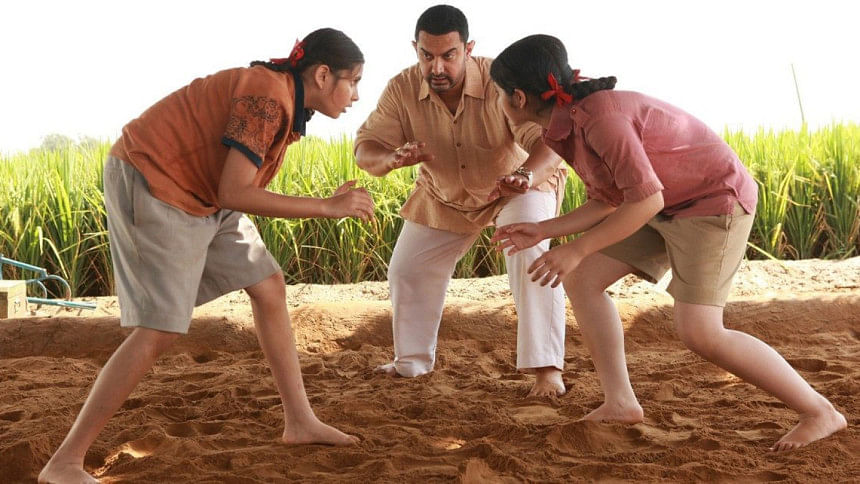
Aamir Khan's Mahavir Singh Phogat in "Dangal" (2016) is a complex father whose story unfolds as both a tale of ambition and a challenge to gender norms. Initially, Mahavir is a man haunted by his own failed wrestling career and the desire to fulfil his dreams through his sons. However, when his daughters show promise, he takes the unprecedented step of training them as wrestlers. His initial strictness and high expectations might seem harsh, but the film gradually reveals a father who wants to protect his children from societal discrimination and empower them to succeed. Mahavir's journey is about breaking stereotypes, not just for his daughters but for himself as a father. It highlights how love can be expressed through perseverance and belief, even when it means challenging tradition. It offers a hopeful vision of fatherhood where respect, trust, and equality take centre stage.
These cinematic fathers are far from flawless, yet their stories resonate because they capture something real: fatherhood as messy, evolving, and defined less by perfection than by commitment. Bollywood's recent shift toward portraying such nuanced relationships offers more than entertainment as it invites us to rethink what fatherly love looks like in our own lives. In reality, fathers may not always have the perfect words or heroic acts, but they show love in small, mundane ways: a word of encouragement, enduring sacrifices, and the patience to listen and adapt. These films remind us that behind every father-child relationship lies a complex, often imperfect, but deeply human bond. So this Father's Day, as we celebrate, let us look beyond clichés and honour the calm strength and evolving love that fathers bring to our lives, just like the stories Bollywood is beginning to tell.

 For all latest news, follow The Daily Star's Google News channel.
For all latest news, follow The Daily Star's Google News channel. 


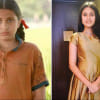





Comments